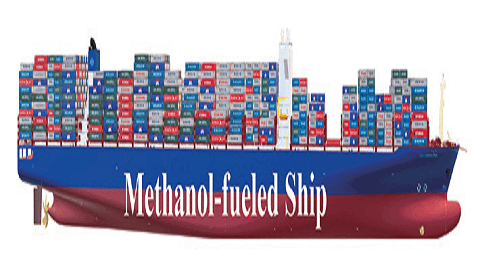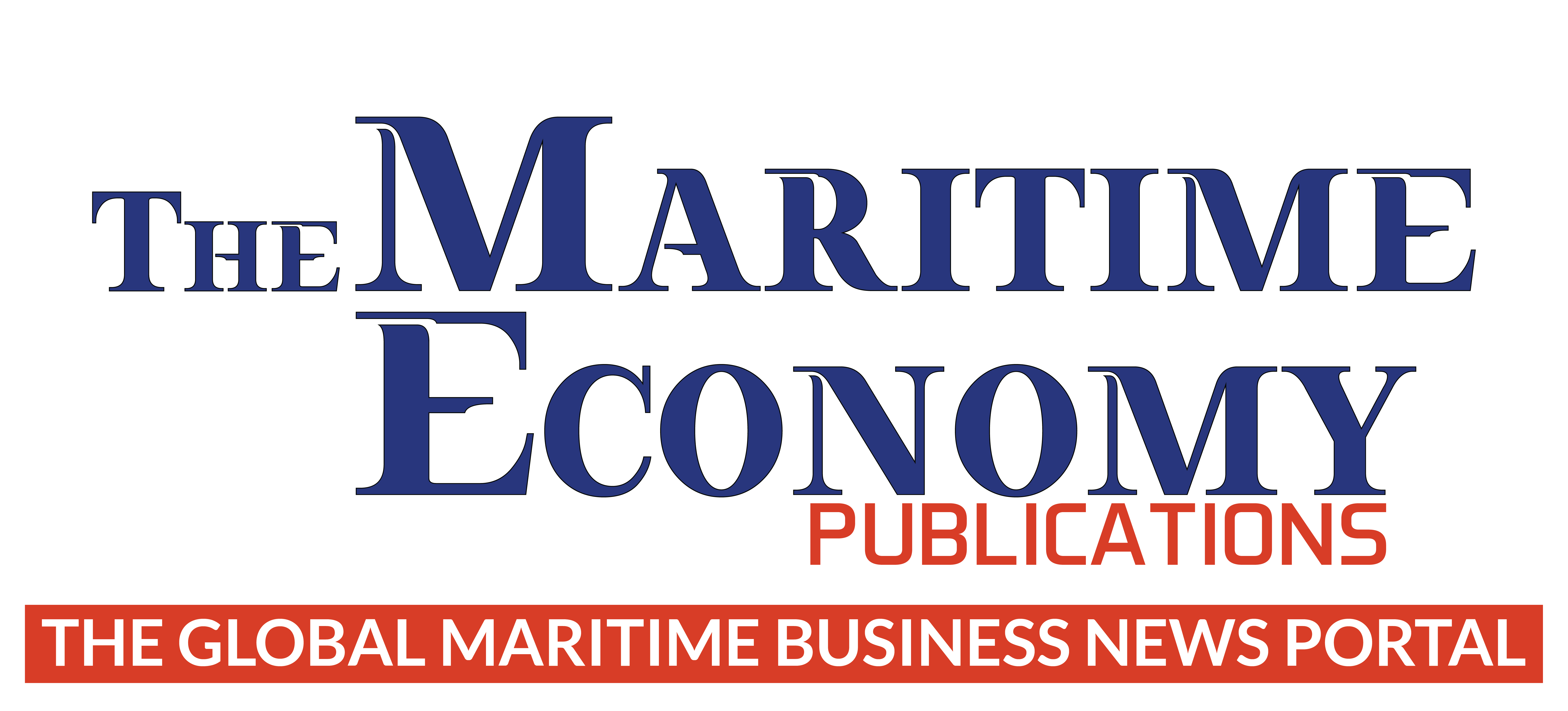New Breakthroughs in Application Technology of Methanol-Fuelled Ships

The use of low-carbon / zero-carbon fuels in the shipping industry is one of the core means to reduce ship greenhouse gas emission . Methanol has gradually become a favored marine low-carbon/zero-carbon fuel because of its advantages such as good combustion characteristics, low pollutant emission, obvious carbon reduction effect,and easy storage .
I. Status of application of methanol fuel in ships
1. Application in full-scale ships
Clarkson statistical data show that, from January to February 2023, a total of 43 new alternative fuel ships were ordered worldwide, amounting to 2.13 million corrected DWT and accounting for 50% of newbuilding orders in the corresponding period by the corrected DWT . From the perspective of ship types, container ships and gas carriers are the main representatives,with newbuilding orders accounting for 49% and 37%, respectively by quantity . From the perspective of fuel types, the popularity of methanol fuel is increasing . In the same period, orders for methanol dual fuel ships exceeded LNG dual fuel ships for the first time, accounting for 56% by quantity . LNG and LPG ships accounted for 26% and 39%,respectively .
So far, there have been about 178 methanol powered ships (including orders)globally . Among them, 135 ships have been in operation or are under construction, and 43 ships are methanol fuel-ready . In terms of ship types, container ships and chemical carriers are the main types .
2. Rules and standard
In the aspect of international rules, in November 2020, IMO officially adopted the Interim Guidelines for the Safety of Ships Using Methyl/Ethyl Alcohol as Fuel at the 102nd session of MSC, which provides safety technical support for the safe use of methanol / ethanol fuel in international ships . However,the Guidelines have not yet been mandatory .
In terms of international standards, IMO has entrusted ISO to formulate the standard of marine methanol fuel (ISO/AWI 6583 Specifications of Methanol as a Fuel for Marine Application) . The standard is under development .
With respect to domestic regulations,Ministry of Transport and China Maritime Safety Administration officially entrusted CCS to carry out research and preparation of regulations on methanol/ethanol fuel powered ships in April 2020. At present, the Interim Rules for Technology and Survey of Methanol/Ethanol Powered Ships are expected to be released this year .
In terms of CCS rules/guidelines, CCS officially released the Guidelines for Ships Using Methanol/Ethanol Fuel (2022) on July 1, 2022, and completed the Guidelines for Methanol Fuel Bunkering Operations on Ships which will be officially released recently . In 2023, CCS will complete the research and preparation of Guidelines for Methanol Fuel Bunkering Ships .
II. Key technologies for application of methanol fuel in ships
1. Layout of methanol fuel tanks
Because methanol fuel is liquid at normal temperature and pressure, by referring to relevant requirements of IBC rules, Interim Guidelines for the Safety of Ships Using Methyl/Ethyl Alcohol as Fuel issued by IMO and Guidelines for Application of Methanol/ethanol Fuel on Ships (2022) issued by CCS, methanol fuel tanks can be either monolithic or independent . Currently, monolithic fuel tanks are the main tank type of the ordered methanol powered ships . For monolithic methanol fuel tanks, the risk of methanol leakage into surrounding compartments should be particularly concerned . Therefore,all the above guidelines stipulate that isolation empty compartments should be arranged around the monolithic methanol fuel tank, unless its surface is surrounded by outer hull plates below the lightest waterline,other fuel tanks containing methanol /ethanol, or fuel preparation rooms . It should be noted that the above rules explicitly indicate that an isolation empty compartment may not be set between the methanol fuel tank and the fuel preparation room . However,from the perspective of fire control, the guidelines also state that the fuel preparation room shall be regarded as type A machine space, and an isolation empty compartment shall be arranged between the methanol fuel tank and type A machine space, meaning that an isolation empty compartment is required between the methanol fuel tank and the fuel preparation room . Literally, there is a clear contradiction . Thus, IACS has carried out discussions . The prevailing view is that the fuel preparation room can be considered as type A machine space only when the fire separation level between it and adjacent compartments is determined .
2. Methanol fuel supply system
The main function of methanol fuel supply system is to transport the fuel safely and reliably to the equipment at the specified pressure, temperature and flow rate, and adjust the fuel supply flow quickly and accurately according to the load requirement of the equipment . Compared with the LNG supply system, the methanol fuel supply system is relatively simple, but the risk of leakage in the supply process and the consequences should still be considered .Therefore, double -wall pipes should be used for methanol fuel supply pipeline, and relevant measures should be taken, including mechanical ventilation at negative pressure,and installation of fuel leakage detector .
At present, foreign companies including Alfa Laval, Wartsila and Auramarine can provide relatively mature solutions of methanol fuel supply system . In China,Sunrui, Headway, SMDERI and Gloryholder Liquefied Gas Machinery (DL) have carried out technical research and product development of methanol fuel supply system . Some system design plans have been approved by class society .
3. Methanol fuel engine
The marine methanol engine is the core equipment of application of methanol fuel to ships . An efficient, environment-friendly,safe and reliable methanol engine is the key to realize the large-scale application of methanol fuel to ships in the future . Critical technical difficulties to be overcome for marine methanol engines mainly include the following: first, stable ignition; second,low -temperature start -up; third, control of nitrogen oxides and unconventional emissions (e .g . formaldehyde), etc .
Through constant efforts of engine manufacturers in recent decade, the development of marine methanol engines has achieved a leap from scratch, from single technical route to a variety of technical routes . So far, the two - stroke methanol engines developed by MAN has successfully realized large-scale commercial application,and over 50 methanol engines have been ordered or planned for methanol fuel powered ships . Other engine anufacturers at home and abroad are also carrying out research and development on two-stroke and four-stroke methanol engines . It is expected that the marine methanol engine market will usher in a new flourishing stage in 2025.
4. Methanol fuel bunkering
The safe layout of bunkering stations is a key to the safety of methanol fuel bunkering operation . The bunkering station should be usually located on an open deck for sufficient natural ventilation . When the bunkering station is located in an enclosed or semi-enclosed space, its ventilation should be specially considered, and risk assessment should be carried out, if necessary .
There are mainly four modes for methanol fuel bunkering, i .e . , bunkering vessel, truck bunkering, barge bunkering,and shore bunkering . In the future, methanol bunkering ships will gradually develop .
III. Service capability of CCS
In recent years, CCS has done alot of work on marine methanol fuel technology . CCS has carried out design approval services for a number of ship types including methanol fuel powered VLCC, pulp carrier, bulk carrier, container ship and chemical tanker, and accumulated rich experience . As the Guidelines for Application of Methanol/Ethanol Fuel on Ships (2022) were released, and the Guidelines for Methanol Fuel Bunkering Operations on Ships are about to be issued,CCS has basically formed supporting service capabilities covering the whole methanol industry chain, mainly including ship arrangement optimization; product certification service; ship classification service; equivalent design evaluation;technical support for bunkering operation;HAZID/HAZOP analysis; and assessment of carbon emissions in the full life cycle of fuels .
In the future, CCS w ill actively play a leading role in technology based on continuous attention to customer requirements, promote the green shipping development, continue to provide technical support for the design, construction and inspection of methanol fuel powered ships,and provide customers with high-quality comprehensive solutions .
